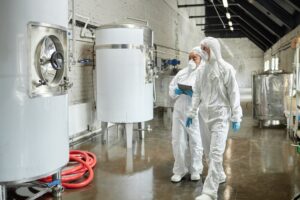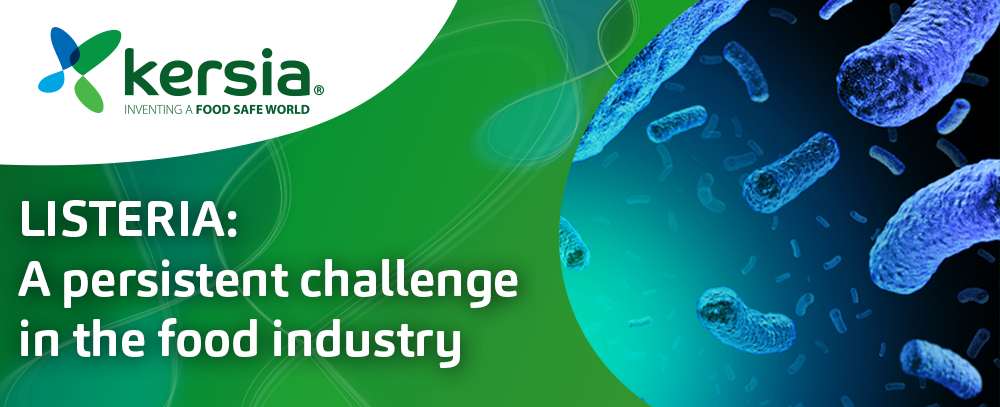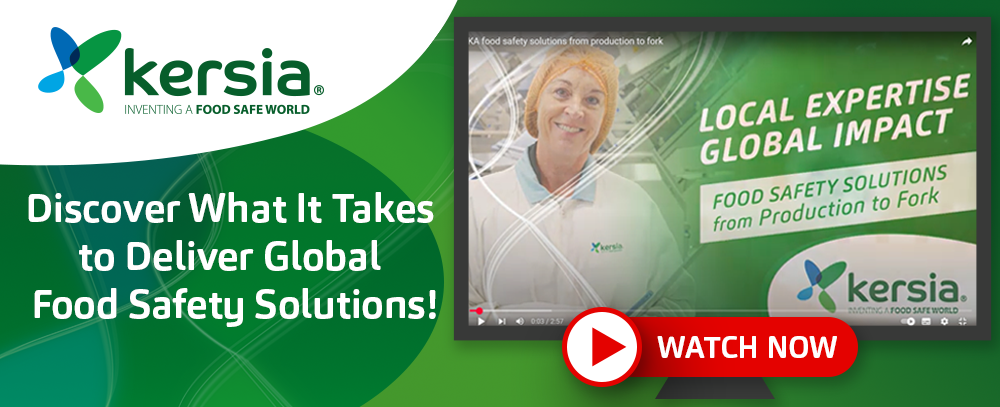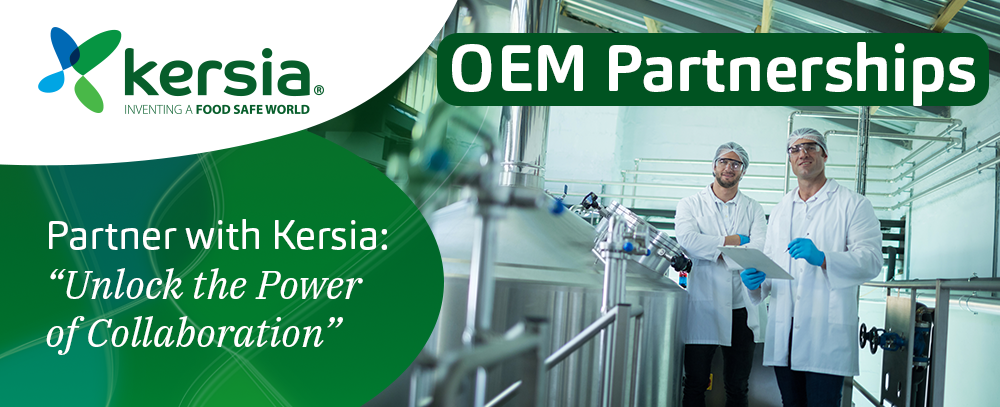The problem of Listeria in the food industry remains a constant concern due to its ability to form biofilms and its resistance to adverse conditions such as low temperatures, acid or alkaline pH and salinity, the latter parameters being closely related to the characteristics of the food product. Listeria monocytogenes bacteria can adhere to different types of food surfaces, forming biofilms that protect the microorganisms and hinder their elimination.
Listeriosis cases and new regulations:
The upward trend in the number of listeriosis cases is a growing concern. According to EFSA’s 2024 report, listeriosis cases reached their highest level since 2007, with almost 3,000 cases reported in 2023 in the EU. This increase underlines the need for continued surveillance and stricter control measures to protect public health.
The new EU Regulation 2024/2895 establishes stricter criteria for food safety in relation to Listeria monocytogenes. This regulation, which amends Regulation (EC) No. 2073/2005, seeks to provide a high and consistent level of protection throughout the food chain. The recommendations of AESAN and other health authorities underline the importance of implementing preventive and control measures to minimize the risk of contamination.
Listeria control in food industries:
Kersia is positioned as a strategic ally for the food industry, helping to better manage and anticipate the risk of Listeria contamination in food production plants, through a systemic hygiene approach based on comprehensive and high added value solutions.
Expert technical advice is essential to ensure that food hygiene and safety practices are aligned with current regulations. This type of guidance helps food companies to implement effective measures that protect the health of consumers, ensuring a safe and compliant food environment.
Properly registered biocidal products play a crucial role in the elimination of Listeria monocytogenes and other pathogens on food surfaces. These biocides have proven to be effective under various conditions, ensuring complete and safe disinfection.
The ability of Listeria to form biofilms on surfaces represents a significant and additional challenge for the food industry. However, through hygiene procedures and protocols designed by our Kersia experts, it is possible to provide a comprehensive solution to the problem of Listeria and microbiological contamination in the food industry. Kersia offers specific solutions to detect, eliminate and prevent the formation of biofilms on both surfaces and circuits. We offer innovative and advanced solutions for the early detection of biofilms, together with corrective and preventive methods for their treatment.
Kersia control measures:

- Audit analysis of possible sources and vectors of contamination, including biofilm detection service on surfaces and circuits.
- Cleaning and disinfection protocols adapted to the production plant, including, when necessary, corrective treatments through the most innovative enzymatic solutions designed to break down the extracellular matrix that forms the biofilm, allowing the elimination of the protective capacity of the microorganisms it harbors.
- Establish preventive treatment routines that specifically prevent the reappearance of biofilms.
- Ensure the surface disinfection stage with biocides of proven efficacy.
- Implement effective zoning in high-risk areas to ensure proper disinfection of footwear, personnel and transport equipment wheels.
- Maintain strict hand hygiene measures (washing and disinfection).
- Ensure continuous training of all personnel in good hygienic practices.
Kersia is committed to supporting the food industry in this challenge by offering effective solutions and expert advice.
To learn more about our cutting-edge solutions, contact us today and take the first step towards safer food production and handling.
Links of interest:
Aesan – Agencia Española de Seguridad Alimentaria y Nutrición
Zoonotic diseases on the rise in the EU: listeriosis cases hit highest levels since 2007 | EFSA



